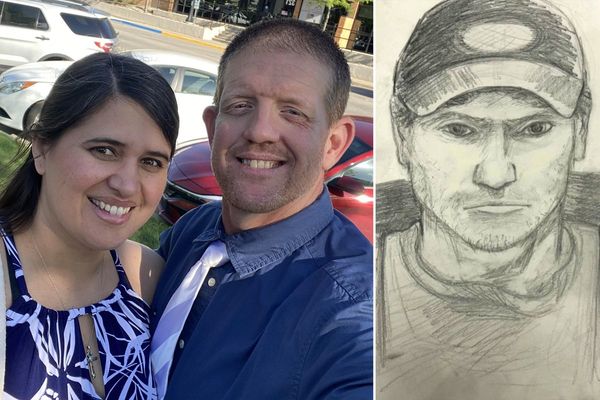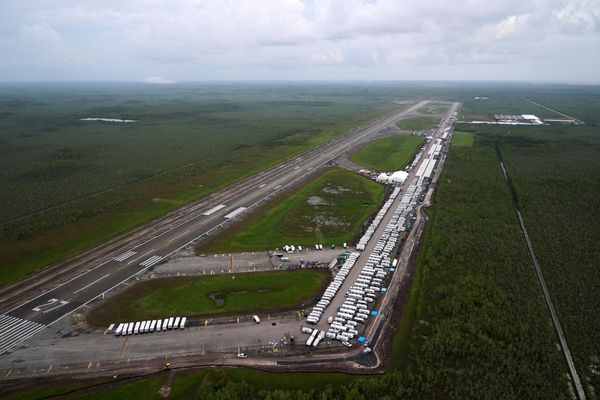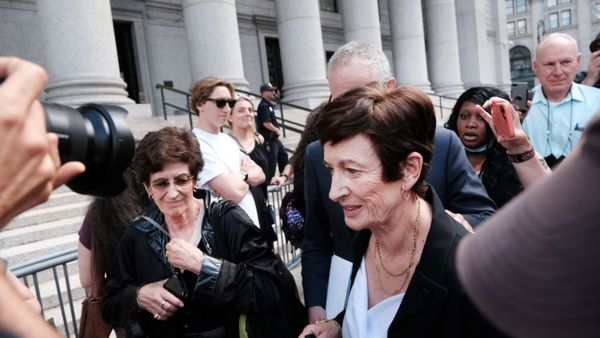
Victorians overcharged or refused a meter in taxis have little recourse, Australia’s taxi giant says, as it joins a chorus of industry players calling for action to end the national crisis of cab drivers going rogue.
A patchwork of loosely regulated systems has existed between different states since various jurisdictions reconfigured laws to respond to the rise of ridesharing. But the company 13Cabs – with more than 8,000 cars nationally across its brands including Silver Service – has echoed concerns from the Victorian Taxi Association calling out that state’s laws as enabling the most rampant rise in illegal overcharging.
Central to concerns are laws that, since 2017, have allowed independent drivers to work in the industry without belonging to a network.
This has meant misbehaving drivers who are kicked out of a company for failing to meet its standards or due to complaints can work independently, without having to adhere to the vehicle or behaviour requirements a company sets out to maintain its reputation.
Additionally, passengers wishing to lodge a complaint about an independent taxi have no complaints department to go to, or even business name to search.
Instead, customers must gather driver details and complain to the state’s oversight body, Safe Transport Victoria.
Calls for a crackdown on independent drivers follow an altercation last week at Melbourne’s Flinders Street station, revealed by Guardian Australia. Police had to be called to force an entire rank of uncooperative cabbies to turn on their meters – something the industry sees as proof that Safe Transport Victoria is ineffective.
‘No checks and balances’
Safe Transport Victoria reportedly has just three officers to police the state’s 110,000 taxi or rideshare drivers, though it did not confirm this. Nor did it confirm the number of infringements it has issued for overcharging – which carries a fine of nearly $2,000.
Guardian Australia was contacted by multiple customers reporting that their complaints to the body had not progressed and that lodging claims was difficult compared with states such as New South Wales, with its taxi complaint hotline.
Common among the complaints was drivers refusing short trips or to turn on meters – a legal requirement – and instead insisting on inflated upfront fares.
The VTA has also claimed that awareness among taxi drivers of Uber customers turning to taxis only when faced by inflated Uber “surge pricing” during busy periods has emboldened some drivers to demand higher fares to replicate the surge benefit for themselves.
Also outside Flinders Street station, a Melbourne resident, Cam Watts, approached the 16 taxis at the rank seeking a short trip. No driver would turn on the meter to take him, Watts says, while some did not even offer an upfront fare as they said the trip was too short.
“Clearly, they were hoping that the surge in crowds would increase the likelihood of someone with a long-distance fare or someone willing to pay inflated rates,” he says.
Jenny Benson was one of Melbourne’s first female taxi drivers in the 1960s. Visiting the city last week, she approached the taxi rank on Swanston Street outside the station. She entered an independent taxi, painted with a brand name the Guardian was unable to find any record of.
“He refused to let us into his cab until we forked out $37 cash for a trip of about a kilometre,” Benson, 83, says. “We are in our 80s and were too tired after our long train journey to question it.” The same trip the next day using a taxi meter cost $11.
Complaints of illegal overcharging are not solely directed at independent drivers and are also levelled against taxi networks.
But 13Cabs’ head of public affairs, David Samuel, says while his company kicks out drivers after a second offence, to maintain its reputation, such drivers often continue driving as independents.
“Other states aren’t anywhere near as bad as Victoria when it comes to independent taxis,” he tells Guardian Australia.
“The system is rewarding the worst performers. It places pressure on companies [like ours] with safety and fatigue management systems in place to enforce them so the customer experience is good.”
“But the drivers who we say can’t drive under our badge any more because they’re not providing a good service, go out and operate independently with the same bad behaviour, [which is] undermining consumer confidence in taxis generally.”
Samuel says this is “a massive gap in the legislation”.
“We get complaints internally but who do you call to complain if an independent driver overcharges you? There’s no checks and balances.”
‘Drivers are preying on people’
Samuel says he is not opposed to measures such as a NSW-style complaints hotline but 13Cabs wants issues in Victoria targeted at the root, including better monitoring of independent drivers’ compliance, and stricter rules.
The company is also enthusiastic about new meter technology. Samuel wants state governments to require meters to be connected to card readers, so fake surcharges can’t be added to payment terminals.
“If you go to Woolworths and at the checkout it says, ‘You need to pay us $60,’ there is a payment terminal attached.
“But in the taxi industry we have a second payment terminal that is not connected to the meter, which can say that shopping actually isn’t $60, it’s $160 if the driver puts that amount in … We want that outlawed.”
Samuel also says the requirement to turn on meters needs greater enforcement, suggesting drivers caught refusing should be banned.
“You can’t create a rank and hail situation where everyone’s just bidding on the next car. These drivers are preying on people,” he says.
He acknowledges: “There’s always going to be rogue actors.”
But the patchwork of changing laws across the country as authorities have scrambled to legalise ridesharing means no state has a perfect system.
Struggle to find a better system
While deregulation in NSW in 2017 did not undo the requirement for drivers to belong to a network as in Victoria, the state dropped its centralised database of wrongdoing – so a driver kicked out of one company could get a job at another without bosses knowing about any complaints.
The NSW government has since promised to display infringement and court attendance data in an industry dashboard for employers. But the NSW Taxi Council’s chief executive, Nick Abrahim, has called for the reinstatement of the former centralised register of accredited drivers, which includes more information such as all behavioural complaints and disciplinary action against drivers.
The state’s new oversight body, the NSW Point-to-Point commission, conducts plainclothed compliance checks at major events, and has issued about 900 fines in two years. Its hotline, which follows up complaints, has secured 2,500 refunds over the same period.
NSW increased its infringement for overcharging or meter refusal from $300 to $1,000 last year but has still discovered repeat offenders. More than 220 drivers ignored initial fines and reoffended within a year, data obtained by Guardian Australia under freedom of information laws revealed.
New “two strikes and you’re out” laws are now in effect in NSW, meaning drivers twice guilty of overcharging or refusing a fare are banned from the industry, including rideshare apps.
Still, critics are sceptical the rules – which require a driver to be found guilty through two separate court convictions – will be effective.
Victoria’s minister for public and active transport, Gabrielle Williams, was contacted for comment. Instead, a Victorian government spokesperson responded, saying: “Price gouging has no place in Victoria and we’re always looking for ways to deliver better outcomes for customers.”







